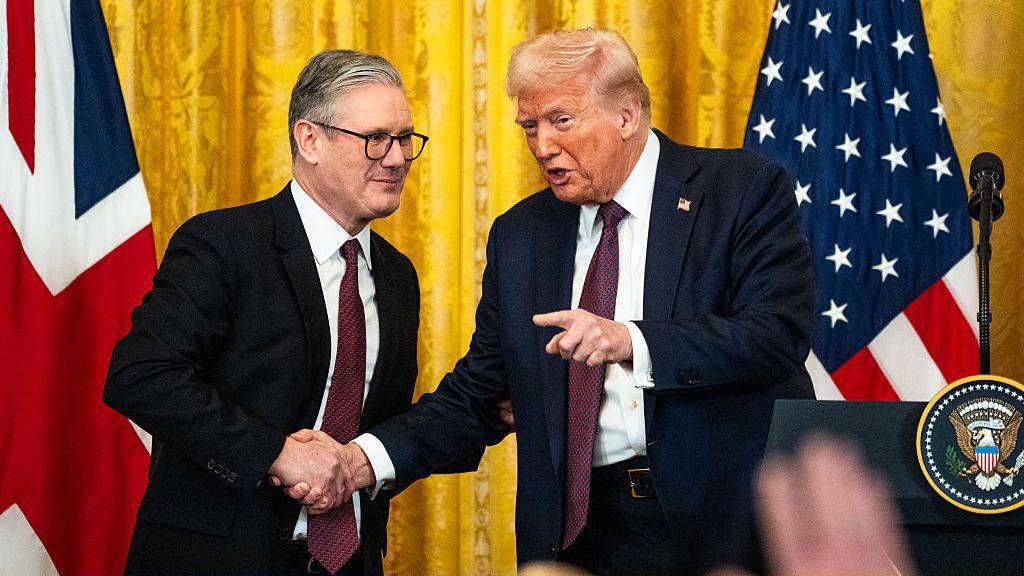The UK has temporarily avoided the full impact of US President Donald Trump’s executive order doubling steel and aluminum tariffs from 25% to 50%.
While the order increases import taxes for US firms sourcing these metals internationally starting Wednesday, the UK’s levy remains at 25%.
However, this reprieve is contingent upon the timely implementation of a deal signed last month with the Trump administration, aiming to eliminate these tariffs entirely. Should this agreement fail to materialize, the higher tariff rate could be imposed on the UK.
Currently, UK steel imports to the US face tariffs. The UK government, stating its commitment to safeguarding British businesses and jobs, aims to enact the agreement swiftly to remove them.
The order cited the US-UK Economic Prosperity Deal (EPD) signed on May 8, 2025, as justification for the UK’s distinct treatment. However, it also included a caveat: the tariff increase to 50% might occur on or after July 9, 2025, if the UK’s compliance with the EPD is deemed insufficient.
This exemption follows a meeting between Business Secretary Jonathan Reynolds and US Trade Representative Jamieson Greer in Paris on Tuesday.
Last month’s US-UK agreement includes reducing or eliminating tariffs on various goods; specifically targeting zero tariffs on UK steel and aluminum and a 10% tariff on cars. This agreement is pending implementation.
The US, after the EU, is the world’s largest steel importer, primarily sourcing from Canada, Brazil, Mexico, and South Korea.
For the UK, the US represents approximately 7% of steel exports, exceeding £400 million annually, making tariffs significantly impactful.
The UK also houses specialists in steel products heavily reliant on transatlantic trade. Gareth Stace, UK Steel’s chief executive, described the recent situation as a “rollercoaster ride,” expressing cautious relief at the current 25% tariff.
He emphasized the industry’s desire for complete tariff removal as agreed in May and voiced optimism regarding the deal’s timely execution.
This would grant UK steel a competitive advantage against the EU and other nations. However, Stace also acknowledged the potential displacement of domestic producers due to steel diverted from the US to the UK and other markets.
Rowan Crozier, CEO of Brandauer, a Birmingham-based metal-stamping firm, noted that while the carve-out prevents UK firms from facing the same import tariffs as global competitors, the pervasive uncertainty is more damaging.
He highlighted the Trump administration’s strategy of creating confusion to facilitate deal-making, resulting in reduced customer confidence in forward planning and order placement.
President Trump’s imposition of tariffs on numerous countries aims to promote the purchase of American-made goods. Tariffs are taxes on imported goods.
While Trump anticipates a boost in US manufacturing and jobs, many economists warn of potential price increases for consumers.
Alan Auerbach, director of tax policy and public finance at UC Berkeley, stated that increased US steel production won’t be immediate, leading to higher prices for buyers in the short term.
Although future US production is possible, the ongoing tariff uncertainty hinders investment decisions.
Shadow business secretary Andrew Griffith criticized Labour’s handling of negotiations, stating that businesses are left in limbo due to their perceived failings.
While UK steel producers may benefit from zero tariffs, securing this trade carve-out involved reducing tariffs on certain US beef and ethanol products. This impacts UK wheat farmers, major suppliers to the ethanol market.
BBC News business editor Simon Jack notes that UK efforts to shield these industries could be interpreted as a setback.

